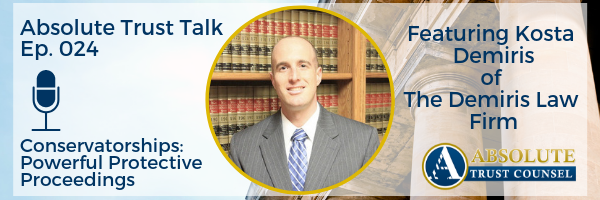All newlyweds hope for “happily ever after.” Unfortunately, for almost half of Americans who wed, that dream does not reflect reality.
Experts say between 40 and 50 percent of all marriages in the United States will end in divorce. Every 10 to 13 seconds someone legally ends their marriage. That means assets accrued before and during marriage may ultimately wind up in the property settlement pile, destined to be broken up and divided. Unless specific steps are taken, inherited property may be included.
People tend to consider property received through inheritance as a gift, intended solely for their use. But failure to keep your inheritance separate and apart from any marital assets could transform it into marital or community property. That can make a big difference in an eventual property settlement. Sure, you may get the inherited asset back, but its value will be included in the overall marital estate and in the financial division of property. That means your spouse may get a financial credit for the asset you originally inherited.
For example, prior to marriage, you inherit a home valued at $500,000. Upon marriage, as a romantic gesture, you decide to put your new spouse’s name on the deed. Ten years later, you decide to divorce. Your marital estate is valued at $1.25 million, including the home, now valued at $750,000. You claim the home was inherited and should be considered separate property. You live in a community property state, such as California. If the court denies your claim, the home will have to be sold to ensure each party receives their share of the estate, or you will have to buy out your spouse’s share of the home.
In California, there is a presumption that inherited property is not a marital asset, but that presumption can be challenged in two ways:
- Combining inherited assets with marital property. For example, if you inherit $50,000 and place it in a joint checking account, rather than segregate it in an account in your name only, you have commingled separate property with marital assets. That $50,000 will then be considered community or marital property. In addition, if you inherit $50,000 and place it in a separate account, but then deposit paychecks into that same account, it will be considered community property because your income, a marital asset, has been commingled with separate property. For a property to remain separate, it cannot be combined with any community or marital property.
- Actions that indicate a desire to convert an inherited asset into marital or community property. For example, using money from an inheritance to purchase a home where both spouses are listed on the deed or paying off a joint mortgage with inherited cash. In addition, inheriting real estate and adding the name of a spouse to the deed may convert that asset into marital property.
When a claim is made that inherited property has been commingled or transmuted and should be considered marital property, the burden falls on the heir to prove otherwise. Generally, a court will set aside the original value of a commingled asset as separate property, if an heir can provide proof of origin, and document how and why an asset was commingled. Transmutations will be set aside only if it can be proved there was no intention of making a gift of the asset to your spouse.
Courts have no obligation to separate assets from marital property once they have been commingled or transmuted. It is solely up to the heir to challenge its inclusion in marital estate, and provide proof that it is separate property.
Prior to marriage, the best method for keeping an inherited asset separate from marital property is through a prenuptial agreement. During marriage, a post-nuptial agreement concerning the treatment of inherited assets may also be prudent. Absent those agreements, proof that an inherited property was not intended to join the marital estate may depend on:
- Documentation. Paperwork that demonstrates an inherited asset was intended to be or was treated as separate property can play a key role in property settlement negotiations. Wills, trusts, tax returns, prenuptial and postnuptial agreements, and transcripts of probate proceedings and judgements are among the documents that can be used to demonstrate that a property should not be included in the marital estate.
- Evidence of separation. For example, the fact that inherited funds were kept in a separate account to which your spouse did not have access, or evidence that inherited real estate was treated as a vacation home and the deed remains solely in the name of the heir.
- If a spouse’s name is added to the deed of inherited property, say for tax purposes, but was not intended as a gift, it may be treated as separate property. However, adding a name to a deed without an express explanation of intent may bring that asset into the marital estate. If an inheritance is spent on a home that becomes a primary residence, it may be considered community property. Similarly, remodeling an inherited asset with commingled funds, or refinancing a mortgage in both names, may convert a property into a marital asset.
- A clearly specified interest. Some trusts specifically state that an interest in an estate is to remain with one individual, even upon marriage or divorce. That interest will be treated as separate property.
No one wants to believe that their marriage will fail. But if it does, taking steps in advance to keep inherited property separate from the marital estate will protect your interests should the worst occur.


